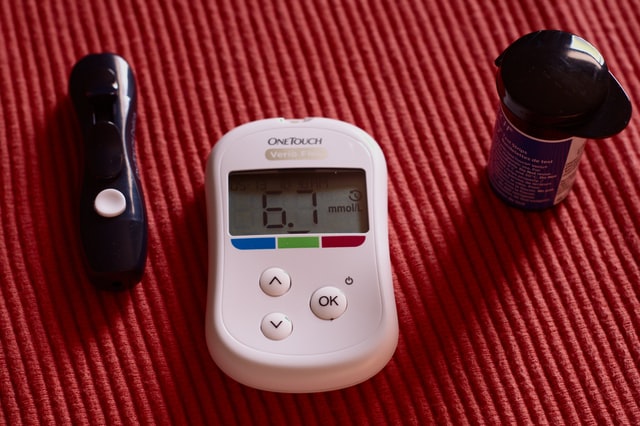
Intermittent fasting is a popular diet plan and has been around for a long time.
This type of dieting involves the person following a fairly rigid eating schedule at irregular intervals throughout the day.
One of the most important things about this type of diet plan is that it can increase resistance to stress and depression.
Recent studies have shown that fasting is good for your body in many ways. The benefits of fasting are more than just losing weight. There are many other benefits you can get from doing this type of diet.
Does fasting increase stress?
Studies have shown that not only do people with excess cortisol have higher levels of stress hormones; they also have higher chances of getting depression.
If you have high levels of stress, your cortisol levels are going to go up, and that can cause problems in your body.
By reducing cortisol levels, you will be able to lower your stress. The lower cortisol levels will help you feel better. Many people experience chronic stress.
Some people are unaware of the fact that the hormones in their bodies cause it. It seems that chronic stress can be cured by the use of intermittent fasting, but it must be implemented correctly.
Does it suppress inflammation?
During your diet, you should try to avoid foods that can increase inflammation. Some of the food items that are especially good at this are the sugar in coffee and soda.
All the sugar in your coffee, for example, raises your blood sugar level and can make you prone to high levels of inflammation.
The good news is that you may find that intermittent fasting can help suppress inflammation. Many people suffer from chronic inflammation because of how their body processes food.
When they eat more food than they can process, they can become very sick. By fasting for a short time, the inflammation in the body is often suppressed.
Inflammation is a significant contributor to many diseases, including arthritis, ulcers, and allergies. Here are some of the many benefits of what is intermittent fasting.
Before you do any exercise program, you should always consult your doctor before doing anything else.
Does intermittent fasting boost your immune system?
When you fast, your immune system will remain active. Your body will need to work to handle your glucose levels and stop the inflammation process.
Even though the blood sugar levels go down during the fasting process, your body will still be working overtime to maintain those levels. Therefore, over a long period, your immune system may be boosted.
Can it help build muscle tissue?

Photo by Alexander Redl from Unsplash
Fasting also is good for your muscle tissue. The protein will be used to replace your muscle tissue when you stop eating for a short period.
This way of eating can help you gain back some of the lean muscle tissue you lost while dieting. If you want to build muscle tissue, fasting will help you do that.
Can intermittent fasting help with weight loss?
The fats in your body should gradually reduce over time while you are eating a deficient carbohydrate diet that does not have any dietary fat.
Instead, you are feeding your body with fat in such a way that your body will not accumulate it. While this is happening, you are eliminating all of the additional calories from the food that you eat.
When you are fasting, your body has a metabolic cycle that cannot get off the fat that you have accumulated, and it cannot start the production of inflammatory response.
There are foods that you can eat, and there are foods that you should avoid. For example, some foods contain a lot of fat. These foods should be eliminated because they will promote fat deposition.
It is important to remember that no matter how much you want to lose weight, you do not wish to gain more weight than you lose. You should choose only the best foods to eat so that you can lose weight and keep it off.
This is the reason why you need to try to avoid foods that contain a lot of cholesterol and saturated fats.
You should also try to choose foods that contain a low amount of sugar and carbohydrates. You can consume fruits, vegetables, and whole grains to get your nutrition.
Can intermittent fast lower blood pressure?
It will also help suppress your blood pressure. Your blood pressure is the most significant factor in your overall health. However, if you have blood pressure that is out of control, this can cause you many severe medical conditions, including heart disease.
Can fast lower blood sugar levels?

One of the main benefits is that it can help control blood sugar levels. Controlling your blood sugar is important because insulin is a substance that is produced when you are digesting food.
If insulin levels get too high, it can cause serious problems. You may be able to control diabetes and other health issues by merely eliminating food from your body for a certain period of time.
Reduces toxins in your body
Fasting helps you get rid of the toxins stored in your body, and it also helps to lower your blood pressure. You can read more here on how to reduce toxins in the body.
This significant health benefit alone is the reason why you should consider what is intermittent fasting as a good health solution.
This way of eating is not a one-time thing that you do a few times, but instead, you will need to use it every day for an extended period.
So, as you can see, there are many benefits to intermittent fasting. However, just as with diet and exercise, it shouldn’t be merely a fad, but a lifestyle change for a prolonged period.
Infographic provided by Center for Weight Loss Surgery, a clinic for duodenal switch Seattle
About The Author:
Gayle Thompson is the chief writer and founder of Secret Elixirs. Gayle is passionate about providing informative articles, reviews, and informative blogs around the subjects of health, beauty, and lifestyle topics to her regular readers to help them be the best version of themselves. Connect with her on Facebook.




